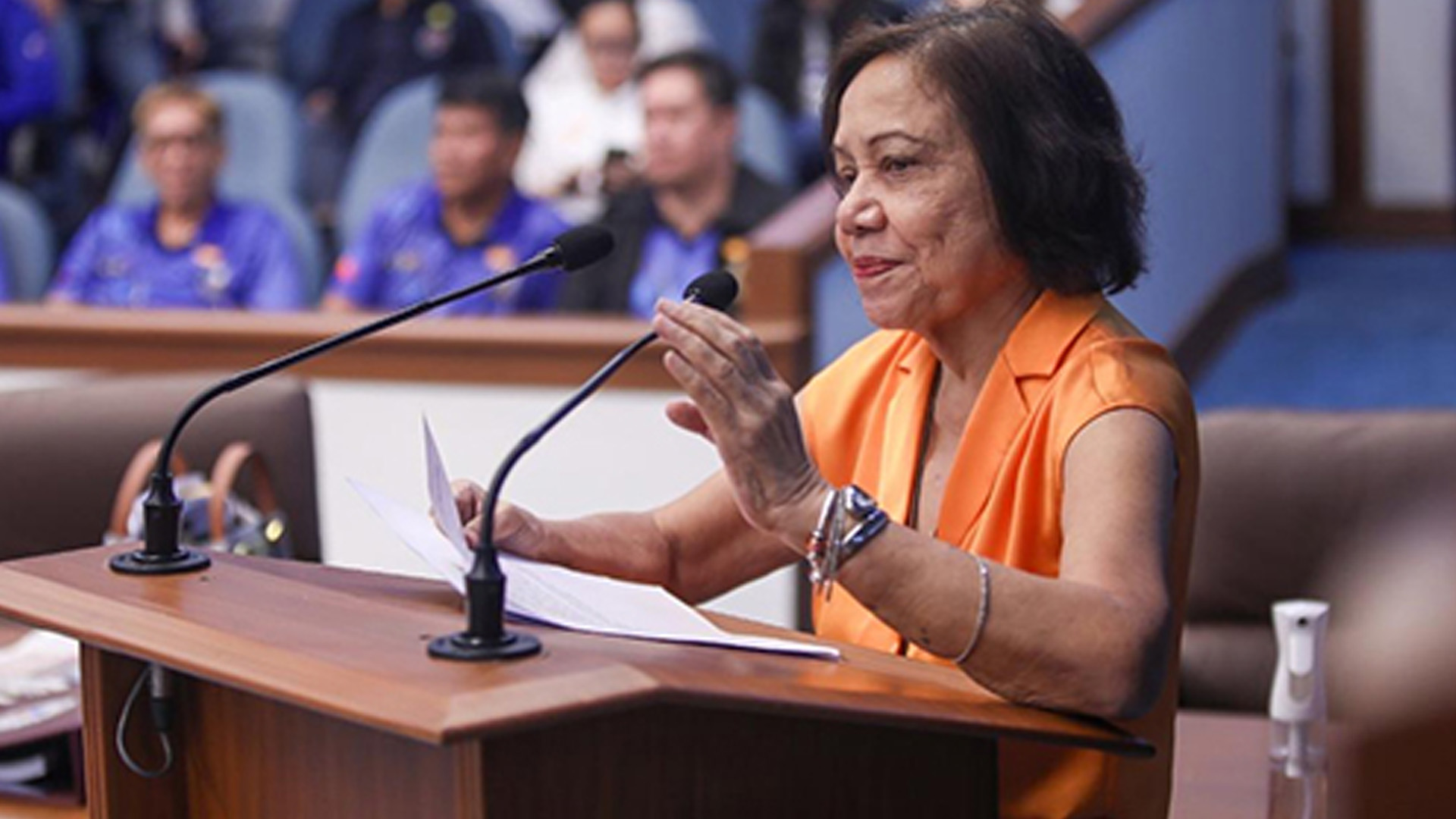To bolster the growth and enhance the productivity of the country’s livestock, poultry and dairy industry, the Senate on Monday, August 12, 2024, approved on third and final reading Senate Bill No. (SBN) 2558, otherwise known as an Act Strengthening Livestock, Poultry, and Dairy Industry Development and Competitiveness, Rationalizing the Organization and Functions of Relevant Government Agencies, And Creating a Competitiveness Enhancement Fund.
Senator Cynthia Villar, principal author and sponsor of the bill, said the industry plays a vital role in ensuring food security and accounts for more than a quarter of the agricultural sector output in 2023. It also stimulates economic growth, especially in rural areas by providing livelihood opportunities to more than 2.8 million livestock and poultry farmers.
“Pork and chicken are the integral components of the Filipino diet, helping ensure a balance intake of nutrients. It is estimated that 52 percent of our protein consumption comes from pork and chicken and this is projected to grow even higher to 58 percent in 2030. Thus, high meat prices could lead to protein deficiency and contribute to malnutrition,” Villar said in her sponsorship speech.
She said disease outbreaks such as the African swine fever had adversely affected pork supply in the country since 2019. She said the Philippines also relied on imported poultry to address the shortfall of chicken products and increasing demand. As a result, she said Filipinos spend more for meat as compared to their counterparts in Thailand and Vietnam.
Likewise, Villar said the Philippines is struggling with dairy production and is heavily dependent on imported milk. She cited data from the National Dairy Authority (NDA) which showed that domestic dairy production in 2022 was merely 30,028 metric tons or less than one percent of the total milk supply in the country. According to Villar, a 2022 study of the Philippine Institute for Development Study (PIDS) showed that the Philippines produces on an average, only 6.8 liters of milk per animal per day versus Vietnam’s 24.2 liters per animal per day and Thailand’s production of 13.6 liters per animal per day.
Despite its importance, Villar said the industry faces several challenges that hinder it from realizing its full potentials. She said one of the major challenges is the highly fragmented government support structure overseeing the industry. She said the fragmentation has led in uncoordinated policies and efforts in developing the competitiveness of the LPD industry.
Villar said the LPD sector historically receives lower development assistance from the government. She said computations by the PIDS showed that from 2009 to 2020, the LPD sector received an average of 1.18 billion per year, accounting for only 1.6 percent of the total budget of the Department of Agriculture (DA) for the period. While this amount has risen in recent years, with the National Livestock Program receiving P3.4 billion in the 2024 National Expenditure Program (NEP), Villar said the amount is still a relatively small amount when compared to the other commodity programs of the DA.
“With our country’s growing population and increasing demand for food, we cannot allow this situation to continue. Through Senate Bill No. 2558, we will set a clear and strategic direction for the LPD industry, strengthen the organizational structure and institutional capacity of relevant agencies, and ensure that adequate resources are provided to support the growth and competitiveness of the industry,” Villar said.
The bill proposes the setting up of a Philippine Livestock, Poultry and Dairy (LPD) Value Chain Development Roadmap to streamline the organization and functions of relevant government agencies and to ensure efficient service delivery and effective implementation of the industry’s policies.
It also calls for the creation of a Steering Committee which will be responsible for the formulation of the Roadmap. In doing so, the National Livestock Program will be reorganized and renamed as the Program Management Office (PMO). The PMO shall act as the secretariat and support staff to the Steering Committee. It may continue with the implementation of the livestock programs and projects under the former National Livestock Program, subject to the supervision and direction of the Undersecretary of the Livestock, Poultry, Dairy and Other Animals (NLPDA) Program.
A Management Information System shall also be created under the proposed legislation to enable timely and accurate responsive decision-making. The Livestock, Poultry, and Dairy Management Information System (LPDMIS) shall be the repository of all information relevant to the LPD industries down to the municipal level.
“And lastly, and most importantly, this proposed measure provides for the creation of a Livestock, Poultry and Dairy Competitiveness Enhancement Fund, building on the model of the Rice Competitiveness Enhancement Fund established before, or the Rice Tarrification Law,” Villar said.
“In addition to the regular budget of the LPD agencies from the annual General Appropriations Act, there is hereby created a Livestock, Poultry, and Dairy Competitiveness Enhancement Fund (LPD Fund) which shall be utilized by these agencies,” the bill stated.
The fund shall consist an annual appropriation not exceeding P7.8 billion sourced from all tariff collections on imported livestock, poultry, and dairy products for the fraction of the year following the effectivity of the Act and 10 years thereafter.
Villar said beneficiaries of the fund are small-holder raisers, cooperative associations or organizations accredited by the DA. An LPD Registry System, the master list of eligible beneficiaries, will be established by the DA in consultation with farmer cooperatives and the local government units.









